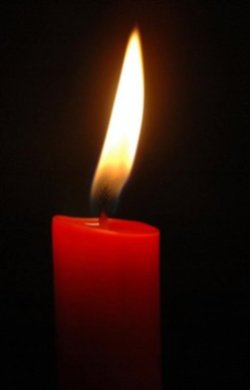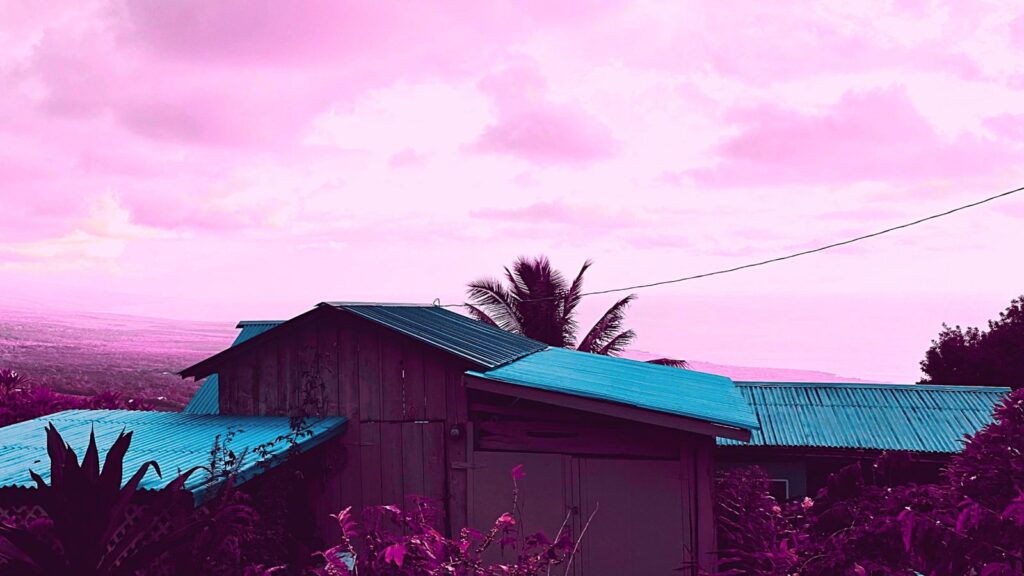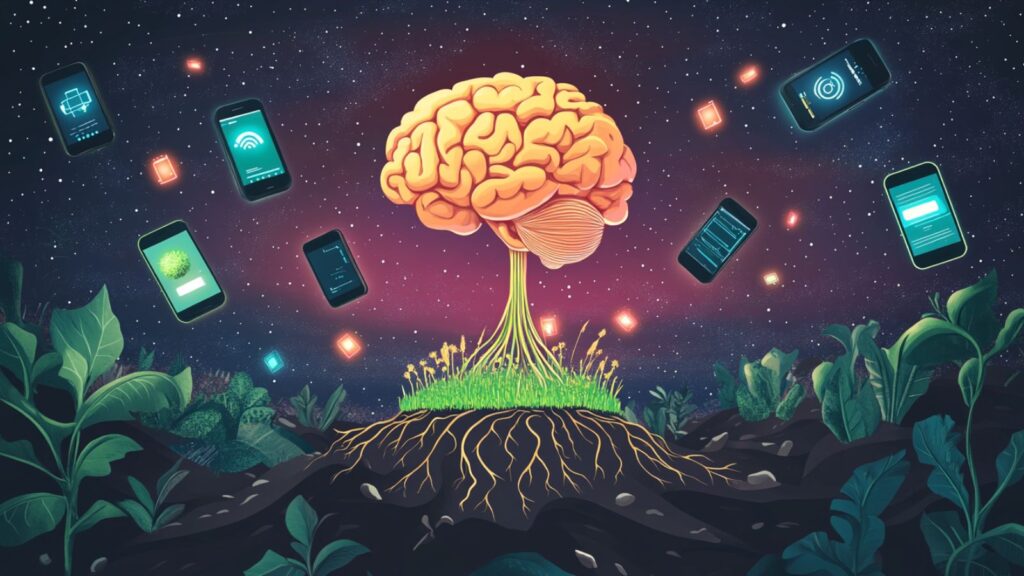A few days ago I felt inspired to visit St Paul's Cathedral, the spiritual heart of the Church of England. Although I was christened as a child, and though I sometimes visit church to hear a good friend play the organ, I wouldn't really identify myself as a Christian. Yet as a gay man and a pagan I appreciate the earnest inclusivity of the Church of England, and I certainly revere the quiet majesty of St Paul's. So it is that I found myself in a side-chapel one lunchtime, meditating alongside a small congregation of the usual businesspeople and tourists.
In the middle of this side-chapel stands a huge ironwork candelabra mounted atop a handsome marble plinth, which is strewn with sand to catch wax and toppled candles. Indeed the whole structure was festooned with countless votive candles that day, being constantly added to by a steady stream of visitors. Each would approach the plinth in her turn, depositing a few coins in the wooden slot before taking a candle from below, lighting it ceremoniously, then finding a place for it amongst the others. Some worshippers would light several candles in turn, whilst others would recite a holy incantation, or else whisper a subtle wish.
I had a strange, even absurd revelation as I sat there observing the flow of visitors. I suddenly saw the scene on two levels. At one level I was moved by the beauty of all these spiritual beings investing their deepest wishes in votary ritual, performing a kind of sympathetic magick even in the heart of the Christian church. On another level, one which shocked and jarred me, I was struck by the total waste of candle-wax. The candles' heat was lost in the comfortable self-regulating ambience of the massive stone building. Their light was drowned by sunlight streaming in from stained-glass windows high above. They were useless — frivolous. They were being wasted.
Of course I understand that the burning of the candle is central to the votive act, that it is essential for the working of the ritual. One can't offer a prayer with a candle and then put it back on the shelf unused! And this Christian act was just the tip of the iceberg — people of almost any faith will offer up a sacrifice, offering or token of some kind or other, given the right context. I knew all this, I felt it, and I had practiced it myself. But still this nagging voice told me, the candles were going to waste. This was the voice of rationality of course, the voice that finds it so hard to accept divinity, faith, ritual, and all that that implies.
So far so good — we know very well that the modern rational mind has trouble accepting its alternatives. But a very specific connection had been made that day; this wasn't a lack of faith I suffered — remember, my first impression was to be moved by the presence of my fellow worshippers; I was one of them too. Rather, even though I had every conviction in the votary ritual, I still intuited that it was somehow wasteful. Perhaps, though I don't like putting it this way, the material cost might outweigh the spiritual gain. And now in hindsight I see that we're faced every day with a mirror-image situation. As we become ever more conscious of the profound poverty of modern life, we fear that the spiritual cost of our lifestyles might outweigh the material gain.
In either case (at the scene at the chapel, or in daily life), the fear is that something precious might be going to waste. Increasingly in today's world this fear is played on, for better or worse, every time we cook a meal (think about freight-miles, cooking gas use, composting?) — or take a simple journey. Our benign concern for each other and the environment is in danger of becoming an overriding obsession, fixing us into meek, predictable patterns of (sustainable?) production and consumption driven by a distinctly machine-like quest for efficiency. I for one almost went as far as to condemn a sacred ritual because it was converting a few grams of paraffin wax into carbon dioxide — and for no appreciable (material) gain!
But if it's out of a concern for nature that we fear waste, that fear is misguided. Nature is not efficient. Where nature finds efficient and elegant solutions to specific problems, on a local scale, the energy that is saved is only exerted again — "wastefully" — elsewhere.
Consider the world's vast reserves of oil and other fossilized hydrocarbons — those same reserves from which the wax candles were made. In prehistory (as now), the energy bombarding the earth from the sun was so great that the ecosystem couldn't possibly make use of it all, whether efficiently or otherwise. Nature's perpetual miracle was to use what it could of this energy to raise towering forests from vast quantities of inert matter taken from the air and the very ground itself. But there was no immediate use for this embodied energy. It was waste. It rotted down and sank deep into the bowels of the earth where, according to some ecologists, it would have been best forgotten forever.
Yet if we're comfortable conceiving of Gaia as a single integrated organism — as some of us do — then what are these rich seams of concentrated, latent energy? They are layers of fat. They are deposits made ready to be tapped when the time was right. Whatever humanity's ills — and we have many — I want to believe that we still remain a vital part of the global ecosystem. Now we can consider mankind's pillage of the oilfields to be a crime against nature, a tragedy or a "wasted" opportunity — meaning that, in retrospect, we can imagine putting those reserves to "better," more efficient use. Or we can accept that our tapping of the earth's yolk-sac began at a time of psychic and spiritual immaturity for us. We were not fully responsible; we were only doing what came naturally. We were part of a natural process.
Now things seem a little different. The stored reserves of energy are running low, their release has forced massive effects upon the global ecosystem, and these twin realizations are prompting us towards new heights of consciousness. Yet by what right do we consider this released energy to have gone to waste? Or to voice an even more challenging question, by what right do we consider waste to be a bad thing?
Let's slow things down a little, and answer these questions one at a time. By what right do we consider released energy to have gone to waste? Consider the gas central heating systems currently in use in millions of homes. They tend to be remarkably inefficient — as well as emitting carbon dioxide and other "waste" gasses, they also let out large amounts of heat into the surrounding air (including in the exhaust gasses themselves, which tend to be steaming hot). We like to think of all this as "waste" — at best, it will never be seen again, though we know we could have put the energy to more efficient use. At worst, it actively contributes to global warming, which we've decided we don't like. But in terms of basic biological processes, we are adding energy (and useful materials) to the ecosystem — resources which otherwise would be trapped deep underground. Your inefficient boiler may help your vegetable patch grow greener. On a wider level, climate change is a massive spur to evolution and is increasing Gaia's complexity even as many species and individuals become extinct — something which, if my intuitions are right, we need not be so squeamish about. Our actions are creating new ecological niches on an unprecedented scale.
Intellectually and morally I am not sure that we can separate the effects we enjoy from those we don't. This raises my second question, by what right do we consider waste to be a bad thing? If we insist on calling the release of energy or material into the environment a waste, we imply that we'd have wanted to get more out of it. We imply that it shouldn't be there yet — or at all, or that it shouldn't be in the form that it is. But we are only now tentatively developing the faculties to really recognize and judge our actions — and it is not a question of individuals answering, but of all humanity answering, as an organ of Gaia. And I suggest again that the release of these vast stored energies, and the transmutation of all this matter, is a natural moment in Gaia's evolution. Again, let's be clear — nothing has disappeared when the candle has burned away. In fact, much has reappeared from the physical, temporal and even spiritual depths of the earth. Whatever our conclusions, we must remember that the energy and matter that was stored up is still there — it's just been put to use. In my most humble opinion, for it to have remained buried forever would have been the only true, unmitigated waste.
Now I'll add the voice of my heart to the voice of reason. One of the hallmarks of emergent consciousness seems to be the ability to resolve multiple, even conflicting points of view. So, I stand by all I've just said and believe it to be true. But in my heart I also feel that there is something wrong with the way we've been "wasting" (I'd prefer to say "using") nature's resources. I'm scared by climate change and environmental degradation. I'm shamed by my contribution to mountains of trash — though perhaps we're amassing a new nest-egg of sorts for future inheritors, in a way that we ourselves can't envision (just as the ancient forests probably didn't know that they'd one day power electric can openers — or high-energy radiotherapy machines, for that matter).
The message that I'd like to offer is deceptively simple. As we become aware that our "wasteful" lifestyles are causing us more grief than joy, we should also beware that we don't become preoccupied with avoiding waste, to the extent that we fear to live our lives, playing into the hands of those who would make our decisions for us. The message is deceptive of course because it is so difficult to put into practice. How do we allow ourselves leeway without returning to the old obscene ways of consumerism and carelessness? I can't answer that question for all of us, but I can propose a naughty, throwaway thought: Waste is not a dirty word.
Image by Rickydavid, courtesy of Creative Commons license.














